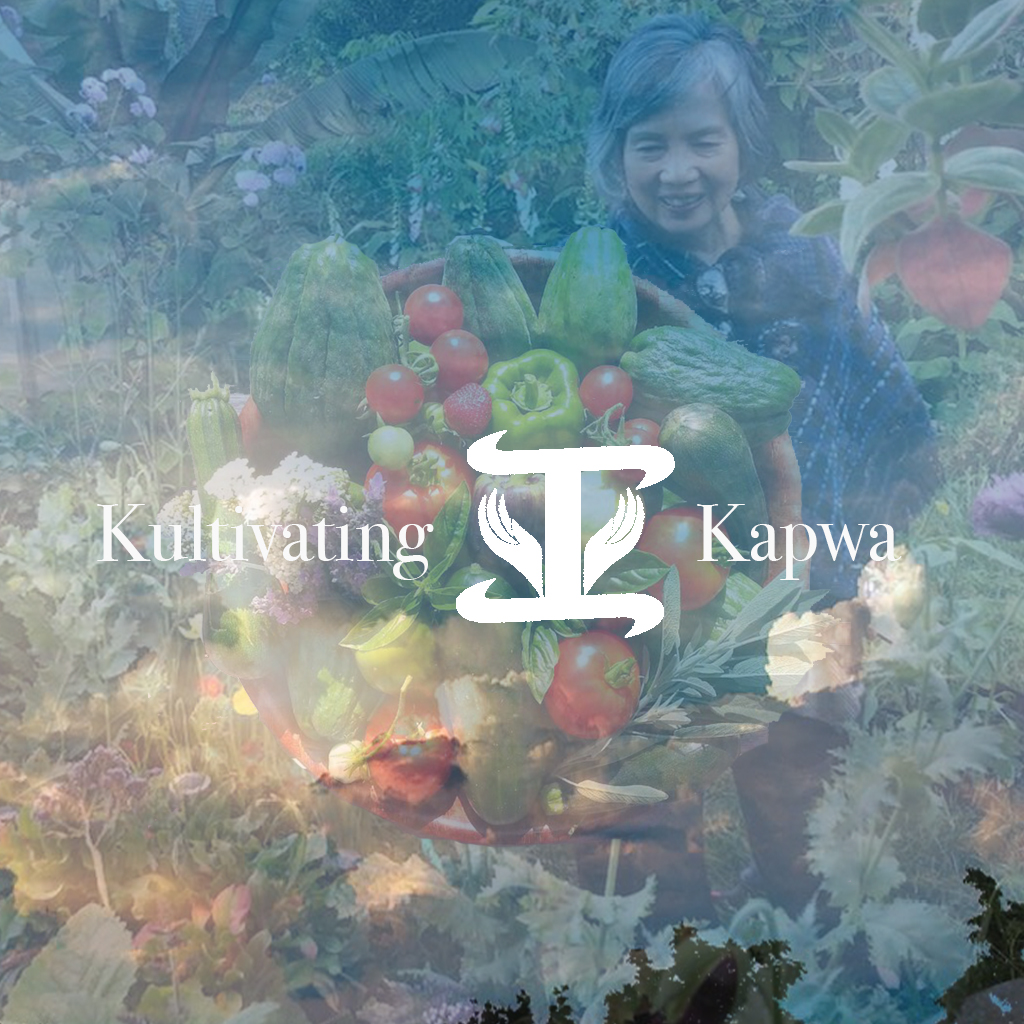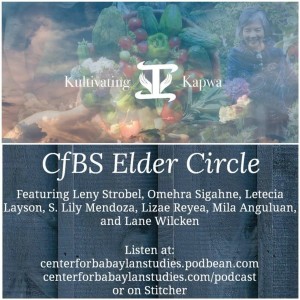
23.1K
Downloads
77
Episodes
This is Kultivating Kapwa, hosted by Jana Lynne Umipig and Olivia Sawi. In our FIRST series, we sit down and ask Auntie Leny questions about her life, her work, decolonization, academia, ethnoautobiography, her relationship to nature, the land, and all living beings, and her views of the future. In our SECOND series, we have conversations with members of the community and explore how decolonization has manifested itself in their work, and how they cultivate kapwa in their own lives. In our THIRD series, we discuss decolonizing parenthood. We explore how decolonization shows up at home and in family, relational to our collective children. We delve into the intergenerational healing that exists in parenting the next generation, that ripples into our relationships to our elders and ancestors, our community, and all parts of our lives.
Episodes

Sunday Jun 28, 2020
Kultivating Kapwa: CfBS Elder Circle
Sunday Jun 28, 2020
Sunday Jun 28, 2020
Kultivating Kapwa: CfBS Elder Circle

This is another special edition episode, and a transition into our next series Kultivating Kapwa: Conversations with Community.
Throughout the whole the month of May, the Center for Babaylan Studies offered online webinars through our initiative Ginhawa: Elements of Care in a Decolonizing World. From Lyra Verzosa: The word “Ginhawa” is both a noun and a verb in Bisaya (Cebuano). It can refer to breath or the act of breathing. “Ginhawa” is a more powerful concept than “well-being” or “wellness” with its integration of the physical, social, emotional and spiritual. Disasters and catastrophes affect our ginhawa by reducing our hininga. Thus, our distress is described by words like “paghahabol-hininga” (literally a chasing after the breath), naghihingalo (panting for breath), buntong-hininga (sighing), kapos sa hininga (running out of breath), all possibly ending with huling hininga (last breath). Ginhawa can be defined as a breath of life, and can be used to remind people that there is life, even after the worst of disasters.”
Every week focused on a different element of care. Week 1 was Earth, where the webinars focused on Physical Health. Week 2 was Air, for Mental Health; Week 3 was Water, for Mental Health. Week 4 was Fire, for Relational Health. Our Culminating Event for Ginhawa: Elements of Care in a Decolonizing World was a session titled Intergenerational Liberation in the Time of Decolonization: A Diasporic Elders Circle. During this session, the current core members of the Center for Babaylan Studies: Aimee Gomez, Jana Lynne Umipig, Jen Maramba, Jo LaTorre, Orion Camero, Vanessa Ramalho, and myself honored several of our elders within the Center for Babaylan Studies: Leny Strobel, Omehra Siganhe, Leteicia Layson, S. Lily Mendoza, Lizae Reyes, Mila Anguluan, and Lane Wilcken.
After an introductory period of sharings and reflections, our elders offered their reflections on the following questions:
-What brings you joy about the ways you see your work reflected in the movement?
-What do you hope the younger generations will continue and expand upon to further your legacy?
This episode contains their reflections and teachings, with some additional offerings from the current Center for Babaylan Studies Core.
You can listen to this podcast on the Center for Babaylan Studies website, Spotify, PodBean, or Stitcher. Make sure to subscribe wherever you listen to the podcast! If you want to contact us, email kultivatingkapwa@gmail.com, or add us on Instagram at @kultivatingkapwa and send us a DM.
Hosted by Jana Lynne Umipig//
Produced by Olivia Sawi//
Co-Produced by Annie Aarons-Sawi//
Music by AstraLogik

Comments (1)
To leave or reply to comments, please download free Podbean or
Lovely! So much gratitude to all of you. So beautiful. May we honor our ancestors and keep our hearts open. Back to our roots❤️.
Monday Jun 07, 2021
To leave or reply to comments,
please download free Podbean App.